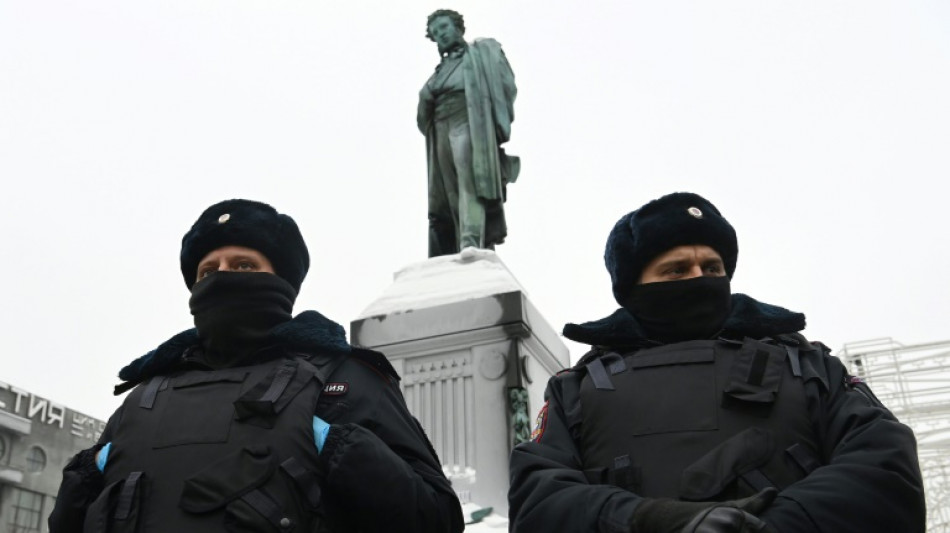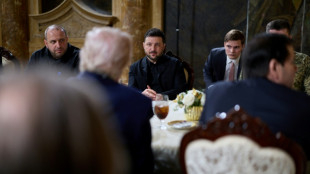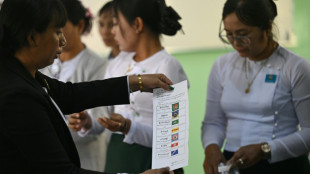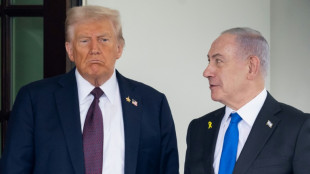
| CMSC | -0.09% | 23.03 | $ | |
| NGG | -0.43% | 77.31 | $ | |
| BCE | 0.32% | 23.13 | $ | |
| SCS | 0.12% | 16.14 | $ | |
| GSK | -0.06% | 49.055 | $ | |
| CMSD | -0.13% | 23.11 | $ | |
| BCC | -0.54% | 74.67 | $ | |
| RYCEF | 0.19% | 15.56 | $ | |
| VOD | -0.27% | 13.085 | $ | |
| BTI | -0.81% | 56.81 | $ | |
| RBGPF | -0.68% | 80.71 | $ | |
| RELX | 0.63% | 41.37 | $ | |
| AZN | -0.36% | 92.57 | $ | |
| BP | 0.15% | 34.315 | $ | |
| JRI | 0% | 13.46 | $ | |
| RIO | -1.82% | 80.78 | $ |

'Guilty': For Ukraine, invasion puts Russian culture in the dock
For many Ukrainians, Russia's cultural scene is as complicit as the government in the invasion of their country and deserves to be banned by the West.
Opposition to high-profile Russian artists and musicians and even cultural icons like the 19th-century poet Alexander Pushkin began after Moscow's annexation of Crimea in 2014.
Although some leading figures in Russia dissented, many applauded the move and have either voiced support or stayed quiet about the current conflict.
Ukrainian Culture Minister Oleksandr Tkachenko said he believed culture is beholden to Russian President Vladimir Putin and "pushes the Kremlin narrative".
"They put the letter Z on their theatres, they speak of Ukrainians as 'little Russians' and consider the Ukrainian language a dialect" of Russian, the former television executive told AFP in a phone interview.
For decades, Russian cinema "presented Ukrainians mainly as silly and greedy," said Tkachenko, who also used to co-own a film studio in Odessa.
Russia is trying to "cancel the cultural identity of Ukrainians", he said, condemning centuries of domination, Russification and cultural appropriation.
The roots of this subjugation run deep, according to Tkachenko, who refers back to the "Executed Renaissance" -- a generation of Ukrainian artists killed off by Soviet authorities in the 1930s.
He sees the current hostility -- and the harm it is inflicting on Ukraine's own cultural heritage -- as an extension of that repression.
In the past few weeks, some 200 cultural sites have been damaged or destroyed by bombing.
In Mariupol in southeast Ukraine, the bombing of a theatre is believed to have killed hundreds of civilians who had sought shelter there.
- Russian culture 'is guilty' -
Russia's invasion has led to a wave of global solidarity with Ukraine and has been accompanied by a large number of cancellations and bans on Russian cultural events and figures in the West.
While this has mainly affected pro-Kremlin artists such as the conductor Valery Gergiev, some cultural institutions have gone further -- one philharmonic in Croatia cancelled two performances of works by the Russian composer Pyotr Tchaikovsky.
Not everyone agrees with this kind of cultural boycott which assigns collective responsibility to the Russian nation for Putin's actions.
"We are not at war with Russia so there is no reason to take punitive measures against artists," French Culture Minister Roselyne Bachelot.
But the minister went on to say that initiatives linked to Russian state bodies and pro-Putin artists would be cancelled or postponed.
Tkachenko wants the West to go further and "refuse all cooperation with Russian state cultural institutions and artists whose activities are financed by the Russian state" -- a far-reaching ban that he says should last until the end of the war.
As for "artists who systematically condemn the war and Putin's policies, this has to be examined on a case by case basis," the minister said.
But many of his compatriots have an even more radical approach, pointing out that Putin's popularity has risen since the start of the war.
Before launching the invasion, the Russian president made several statements denying Ukraine's cultural identity and even its existence as a nation.
An opinion piece by the state news agency RIA Novosti called for a "de-Ukrainisation" of Ukraine.
"Behind the real Vladimir Putin stands the collective Putin of the Russian people," Ukrainian historian Yaroslav Grytsak wrote in Time magazine.
Ukrainian producer Alexander Rodnyansky, whose career in Russia earned him two Oscar nominations, agrees.
After the discovery of mass civilian killings in Bucha, a town near Kyiv that was occupied by Russian forces for a month, he wrote on Instagram: "We can no longer speak about Russian culture.
"It is guilty. And all those who are involved in it are also guilty."
X.Maes--JdB


